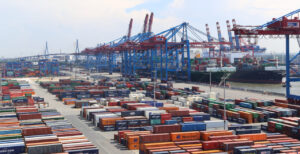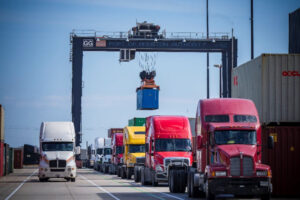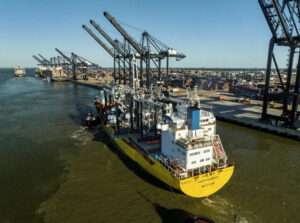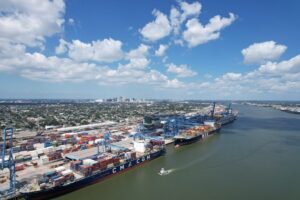The global supply chain faces another threat as millions brace for the UK’s biggest train strikes in decades, set to reduce services by around 80 per cent.
Last-minute talks over pay and pensions between unions and Britain’s rail executives are underway, but strike action is likely to go ahead. Major lines across the UK will be critically disrupted on 21, 23 and 25 June.
The Rail Maritime and Transport Workers (RMT) union’s General Secretary, Mick Lynch, said the union would continue its campaign “for as long as it takes to get a settlement” as the union has a mandate for six months of industrial action.
Lynch has further called on the UK Government to intervene as mediator in pursuing a deal, but Transport Secretary Grant Shapps has since commented that negotiations should be between unions and employers alone.
Shipping lines have warned of possible negative repercussions on the supply chain, with Hapag-Lloyd issuing a notice to report increased demand on trucks.
Danish giant Maersk has also revisited its schedule to provide coverage despite the strikes and made arrangements to minimise the impact on the supply chain.
Travellers face reduced service ahead of rail strikes https://t.co/k1EZS7QEll
— BBC News (UK) (@BBCNews) June 20, 2022
The UK nationwide strike follows several other strike actions currently rampaging across North Europe.
Talks between trade unions and seaport companies in Germany have yet to provide an agreement on wage protection, with a new round of discussions scheduled to occur on 21 June.
In the meantime, labour talks between the International Longshore and Warehouse Union and the Pacific Maritime Association in the US are unlikely to provide a solution before the deadline, but both parties have ruled out the possibility of strike action.









